Fair Trade
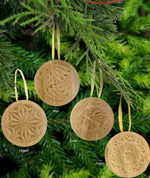
Beautifully rustic disks of walnut hardwood — carved by hand in Afghanistan — bring a sense of global consciousness to your holiday decorating. Made at Turquoise Mountain Arts – a school designed to preserve traditional craft – each elegantly carved ornament is individually signed by the artisan and comes with a gold organza ribbon for hanging.
Available in your choice of four designs:
- Flower features a Nuristani flower motif
- Peace reads solha which means “Peace” in Duri, the local dialect
- Star features a Nuristani star motif
- Love reads mababat which means “Love” in Duri, the local dialect
- $14.95 each or two for $24.95
3” diameter
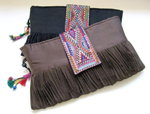
These sophisticated clutches are made from genuine burkhas. Each clutch is hand crafted by an Afghan woman artisan living in a refugee camp in Pakistan. The women are employed by Zardozi, an Afghan non-profit organization, and their products are sold through the Khaled Hosseini Foundation. Traditional beading on the side of the bag adds interest. Clutches have colorful hand embroidered flaps that close magnetically.
- $32
- Available in brown or black
- Zippered pocket inside
- 12” long and 6 ¼” tall
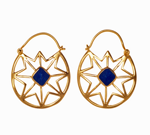
Bold in design and timeless elegance, these earrings feature an intricate cutout star pattern and a diamond-shaped, lapis bead. As high in quality as they are in class, these earrings are forever fashionable.
In war-torn Afghanistan, the non-profit, women-led organization Aayenda aims to set the foundation for long-term, stable economic growth by opening an international market for female Afghan artisans. The aptly named organization (Aayenda means ‘future’ in Dari) trains its artisans in jewelry-making, e-commerce and literacy in order to increase artisans’ professionalism and heighten their awareness of what it takes to improve their communities.
- Gold plated sterling silver with lapis detail
- 1″ wide
- $60
Books
Fiction
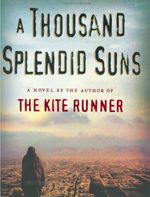
A Thousand Splendid Suns
By Khaled Hosseini (Riverhead Books, 2007)
Hosseini’s second novel is an incredible chronicle of thirty years of Afghan history and a deeply moving story of family, friendship, faith, and the salvation to be found in love.
Born a generation apart and with very different ideas about love and family, Mariam and Laila are two women brought jarringly together by war, by loss and by fate. As they endure the ever escalating dangers around them – in their home as well as in the streets of Kabul – they come to form a bond that makes them both sisters and mother-daughter to each other, and that will ultimately alter the course not just of their own lives but of the next generation. With heart-wrenching power and suspense, Hosseini shows how a woman’s love for her family can move her to shocking and heroic acts of self-sacrifice, and that in the end it is love, or even the memory of love, that is often the key to survival. Other books by Khaled Hosseini
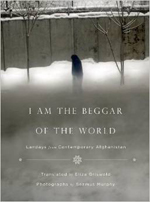
I Am the Beggar of the World: Landays from Contemporary Afghanistan
Translated by Eliza Griswold (Farrar, Straus and Giroux, 2014)
An eye-opening collection of clandestine poems by Afghan women
Because my love’s American,
blisters blossom on my heart.
Afghans revere poetry, particularly the high literary forms that derive from Persian or Arabic. But the poem above is a folk couplet—a landay, an ancient oral and anonymous form created by and for mostly illiterate people: the more than 20 million Pashtun women who span the border between Afghanistan and Pakistan. War, separation, homeland, love—these are the subjects of landays, which are brutal and spare, can be remixed like rap, and are powerful in that they make no attempts to be literary. From Facebook to drone strikes to the songs of the ancient caravans that first brought these poems to Afghanistan thousands of years ago, landays reflect contemporary Pashtun life and the impact of three decades of war. With the U.S. withdrawal in 2014 looming, these are the voices of protest most at risk of being lost when the Americans leave.
After learning the story of a teenage girl who was forbidden to write poems and set herself on fire in protest, the poet Eliza Griswold and the photographer Seamus Murphy journeyed to Afghanistan to learn about these women and to collect their landays. The poems gathered in I Am the Beggar of the World express a collective rage, a lament, a filthy joke, a love of homeland, an aching longing, a call to arms, all of which belie any facile image of a Pashtun woman as nothing but a mute ghost beneath a blue burqa.
Non-Fiction
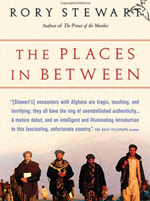
The Places In Between
By Rory Stewart (Mariner Books, 2006)
In January 2002 Rory Stewart walked across Afghanistan – surviving by his wits, his knowledge of Persian dialects and Muslim customs, and the kindness of strangers. By day he passed through mountains covered in nine feet of snow, hamlets burned and emptied by the Taliban, and communities thriving amid the remains of medieval civilizations. By night he slept on villagers’ floors, shared their meals, and listened to their stories of the recent and ancient past. Along the way Stewart met heroes and rogues, tribal elders and teenage soldiers, Taliban commanders and foreign-aid workers. He was also adopted by an unexpected companion – a retired fighting mastiff he named Babur in honor of Afghanistan’s first Mughal emperor, in whose footsteps the pair was following.
Through these encounters Stewart makes tangible the forces of tradition, ideology, and allegiance that shape life in the countless places in between.
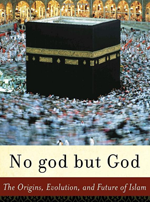
No god but God: The Origins, Evolution, and Future of Islam
By Reza Aslan (Random House, 2011)
In No god but God, internationally acclaimed scholar Reza Aslan explains Islam—the origins and evolution of the faith—in all its beauty and complexity. This updated edition addresses the events of the past decade, analyzing how they have influenced Islam’s position in modern culture.
Aslan explores what the popular demonstrations pushing for democracy in the Middle East mean for the future of Islam in the region, how the Internet and social media have affected Islam’s evolution, and how the war on terror has altered the geopolitical balance of power in the Middle East. He also provides an update on the contemporary Muslim women’s movement, a discussion of the controversy over veiling in Europe, an in-depth history of Jihadism, and a look at how Muslims living in North America and Europe are changing the face of Islam. Timely and persuasive, No god but God is an elegantly written account that explains this magnificent yet misunderstood faith.
Films
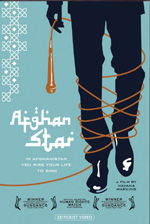
Afghan Star
(2009, 88 minutes)
In Afghanistan you risk your life to sing. This film chronicles the American Idol-like television show that premiered in 2005 on Tolo TV, an independent channel in Afghanistan that has capitalized on the restrictions lifted on music throughout the country in 2004.
Afghan Star, as a television phenomenon, attracts up to 11 million viewers per episode, making it clear that it symbolizes more than a superficial pop music competition. Director Havana Marking does a wonderful job of splicing political facts in among footage following four exuberant final contestants, Setara, Rafi, Hameed, and Lema, who range from ages 19 to 25. Footage of urban ruins, tattered flags, and life in poverty are carefully woven in with interviews and profiles of these singers that each explains how music is a sign of freedom to their people.
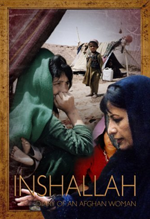
Inshallah – Diary of an Afghan Woman
(2002, 52 minutes)
This documentary provides excellent insight about Afghanistan both before and after the Taliban. Suraya Sadeed, an Afghan-American – and the subject of this documentary – offers a very pragmatic view of her native country. This movie is a great accompaniment to her book Forbidden Lessons in a Kabul Guesthouse.
To help the Afghan people, Suraya has led 18 relief missions to her homeland since 1993, smuggling food and supplies through Taliban-held territory and setting up often clandestine schools and medical clinics. She has flown in a helicopter piloted by a man who was stoned beyond reason. She has traveled through mountain passes on horseback alongside mules, teenage militiamen, and Afghan leaders. She has stared defiantly into the eyes of members of the Taliban and of the Mujahideen who were determined to slow or stop her. She has hidden and carried $100,000 in aid, strapped to her stomach, into ruined villages.
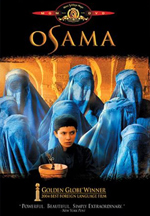
Osama
(2004, 83 minutes)
Inspired by a true story, this Golden Globe-winning drama was the first film made in Afghanistan after the fall of the Taliban. After the brutal regime bans women from working and forbids them to leave their homes without a male escort, a 12-year old girl and her mother find themselves on the brink of starvation. With nowhere left to turn, the mother disguises her daughter as a boy. Now called Osama, the young girl embarks on a terrifying and confusing journey as she tries to keep the Taliban from discovering her true identity.
Hailed by critics as ‘stunning’ (Entertainment Weekly), ‘breathtaking’ (Slant) and ’emotionally charged’ (Screen International), Osama is ‘a striking work of cinematic art’ (L.A. Weekly).
Music
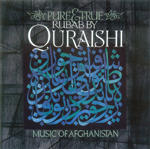
Quraishi’s father made him his first rubab, an ancient instrument belonging to the short-necked lute family. Technically, Quraishi possesses a masterful sense of rhythm and an acute ear, but it is his poetic heart that moves his listeners. His sensitive interpretations of the classical repertoire are infused with fresh and youthful expression. His performances form a living and vital link between the rich tradition of the Afghan classical court music, the golden years of Afghan radio, the musical realities of today’s diverse immigrant communities, and the future of a nation’s musical identity.
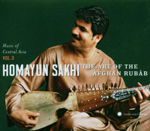
Homayun Sakhi – Art of the Afghan Rubab
The Music of Central Asia initiative was set up by the Aga Khan and the Smithsonian Insitution to document the surviving folk music traditions of that rich part of the world, and to present it to the global community with enough background to get the most out of it. Each volume in the series comes with a substantial booklet with an explanation of each track and a presentation of the instruments, as well as a DVD with a short documentary film.
In this third volume, the Afghan rubab tradition is represented by virtuoso performer Homayun Sakhi. The rubab is stringed instrument of which three strings are plucked and another three function as drones and 11 or 12 as sympathetic strings. The rubab performer is accompanied by a tabla drummer. While the rubab is squarely a Central Asian creation, but its Afghani performance tradition developed in close relationship with players in the East, and so afficionados of North Indian music will find this to be quite familiar.
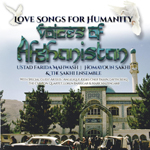
Voices of Afghanistan – Love Songs for Humanity
Voices of Afghanistan is an ensemble of Central Asian musicians from different generations and varied musical backgrounds. They share a passion for the music of Afghanistan, as well as a desire to introduce it to audiences in their present home in the U.S. Like so many Afghan musicians, the core members of this group have fled violent conflicts at home, moving from Kabul to Peshawar, Pakistan — and, when that became a Taliban stronghold, the U.S. The community includes 65-year-old Ustad Farida Mahwash, a legend whose voice is known to every Afghan alive during the ’70s and ’80s. She is famous for singing ghazals – light classical love songs with beautiful melodies.
Mahwash’s principal collaborator in Voices of Afghanistan is young enough to be her son. Born in 1976 to a renowned musical family, Homayoun Sakhi rapidly became a master of the rubab — a double-chambered lute that is the national instrument of Afghanistan. The rubab is at least 1,000 years old, but within a short time playing it, Homayoun was already inventing new techniques for it.
Speaking in her home in California, Mahwash says the album title gets right to the message these musicians want to convey. “Art generally, and singing especially, is love. I’m a messenger of love. I want to give love all over the world. Doesn’t matter to me — Jewish, Christian, Buddhist, Muslim. I have love for humans.”
Curated by Marcie Christensen from the recommendations of Bond Street Theatre
